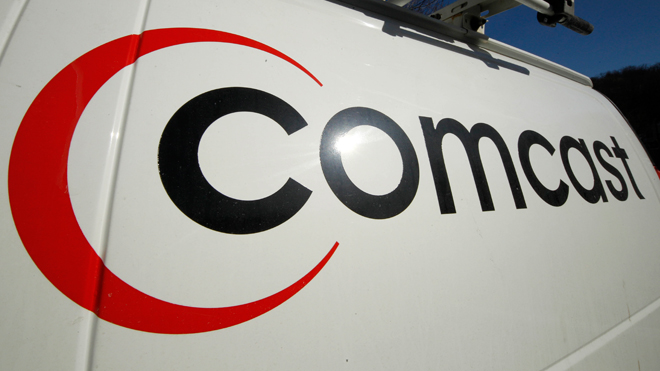On Thursday, the Federal Communications Commission voted in favor of a new standard for broadband Internet. From now on, anything less than 25Mbps downstream and 1Mbps upstream is no longer considered broadband — but there has been one unexpected (and perhaps unwanted) victor as result.
As of January 29th, Comcast’s broadband market share is now greater than 50%.
READ MORE: Comcast is sorry it called customer an ‘a**hole’ on their bill
According to a Comcast filing from December 2014 regarding the upcoming Time Warner Cable merger, the provider noted that it would control “56.8 percent [market share] excluding mobile broadband and 44.7 percent including mobile broadband,” reports Ars Technica.
So how does Comcast already have a 50% market share on broadband without TWC? Here’s the kicker: “Comcast’s national share [will] only increase by one percent due to the transaction under this definition of broadband.” In other words, the TWC merger won’t have any significant impact on the provider’s broadband market share.
It’s worth noting that Comcast is basing its numbers on an FCC report from December 2013, but it’s clear that regardless of the exact percentage, Comcast got a huge boost from this decision.
Worst of all, it’s even given Comcast another argument in favor of the highly contentious TWC merger:
“[T]he salient fact is that even at the most extreme speed threshold of 25Mbps, the transaction has no material impact on competition: The combined company’s broadband share would increase by only 1 percent.”




